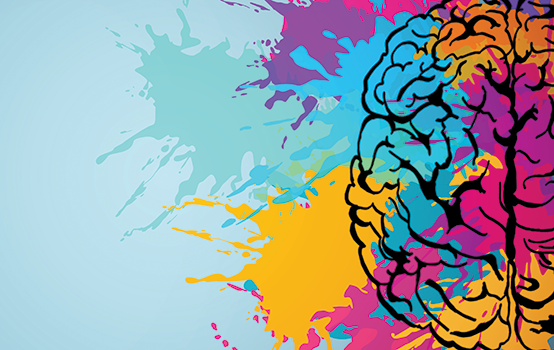Real life today requires students to develop adaptive intelligence that enables them to tackle messy problems with unclear solutions.
Imagine intelligent, friendly space aliens come to Earth in the year 2120. They want to understand this planet’s various inhabitants and their social customs. What will they find? Will they find a world of people living in peace with each other, enjoying clean air and water and largely temperate climates? Or will they find a world devastated by largely human-induced ills, such as global climate change, air pollution, water pollution, pandemics, weapons of mass destruction, and general fear of others? Seeing what the world is like, will they think of its human inhabitants as intelligent — or as anything but intelligent?
This mental exercise leads us to think about what we even mean when we say someone is intelligent. If we view intelligence through the lens of IQ tests and their proxies — other tests that measure roughly the same thing (Boring, 1923; Frey & Detterman, 2004; Koenig, Frey, & Detterman, 2008; Sackett, Shewach, & Dahlke, 2020), then we humans can be self-congratulatory: During the 20th century, IQs around the world increased by roughly 30 points (Flynn, 1987, 2012, 2016). The only reason the average IQ remained at 100 is that test publishers kept re-norming intelligence tests to set the average at 100. But is this notion of intelligence — commonly referred to as general intelligence —adequate? Does it do justice to the knowledge and skills needed to confront the problems that face us today?
Early 20th-century scholars defined intelligence as the ability to adapt to the environment (Binet & Simon, 1916; “Intelligence and its measurement,” 1921; Wechsler, 1944). But does global climate change, water pollution, air pollution, and the worsening of existing natural disasters in any way represent adequate “adaptation to the environment”? Is it possible that humanity has lost sight of what intelligence really is, in favor of some attribute that, although relatively easy to measure, does not and should not qualify as intelligence?
IQ tests have been criticized for various reasons: The items on them are remote from real-world concerns; they show differences among racial and ethnic groups; they fail to take into account important skills for everyday life such as creative, commonsense, and wise thinking; and they favor those whose parents are in a position to provide their children with the resources that will enable them to thrive on the tests — such as living in neighborhoods with schools having strong academic programs and tutoring of various kinds to prepare their children for the tests. Surely, there must be something more to intelligence and success in life than being born in the “right place” at the “right time” with the “right parents”?
In recent work, I have discussed what I call adaptive intelligence, a construct that I believe comes closer than the more typical test-based definitions to capturing what earlier thinkers meant by intelligence (Sternberg, 2019a, in press-a, in press-b). A person with adaptive intelligence uses that intelligence in one of three ways: (1) to change themselves so they better fit their environment, (2) to shape the environment to better fit their and others’ needs or desires, or (3) to find a new environment that is a better fit than the one presently inhabited.

Adaptive intelligence vs. general intelligence
Adaptive intelligence differs in three key ways from general intelligence. First, the appropriate criterion for adaptive intelligence is not grades in school, or the prestige of the college one goes to, or one’s annual compensation, but rather, what one has done in one’s life, individually or collectively, to make the world a better place to live (Sternberg, 2016). Adaptive intelligence is about creating a future, not only for ourselves, but also for future generations. Adaptive intelligence is not just about maximizing individual return on investment through prestigious education and employment, even if the employment is to create even more pollution and more adverse climate change; it is about leaving future generations a viable and livable world.
Adaptive intelligence is about creating a future, not only for ourselves, but also for future generations.
Second, the kinds of problems one solves using adaptive intelligence are quite different from the kinds of problems one solves using general intelligence. Table 1 shows 10 differences between typical problems found on so-called intelligence tests and their proxies, on the one hand, and the problems people confront in the real world, on the other. The table suggests that the ways we test for abilities, and often achievements, do not measure up to the requirements of the everyday world. Most important, for real-world adaptive problems, there are no single correct answers, and it often is not even clear what the problems are. People have to recognize the existence of the problems and then define the problems for themselves. The difference between these kinds of problems is so great that it is reasonable to expect that there actually would be relatively little transfer in skills from the one kind of problem to the other. In other words, those who excel at one type of problem may struggle at the other.
Third, adaptive intelligence problems have a different kind of criterion for what constitutes a good solution. On a typical general intelligence test, a good solution produces the correct answer — and other answers are wrong. But an adaptive intelligence test requires a good answer — one that (a) helps to promote a common good (b) over the long and the short term, by (c) balancing one’s own interests with larger interests and those of others (d) through the infusion of positive ethical values. Such answers are not, generally, right or wrong (Sternberg, 1998, 2019b); rather, they show the test takers’ ability to use their adaptive intelligence to make the world or some part of it a better place not just for themselves, but for others as well.
Assessing adaptive intelligence
Although adaptive intelligence cannot be assessed through the kinds of clear and straightforward questions used to assess general intelligence, there may be times when educators want to know how well students can use their adaptive intelligence. So what do problems look like that assess adaptive intelligence? These three examples from my work with my collaborators show how adaptive intelligence problems can be incorporated into elementary or secondary curricula:
Littering (elementary grades)
Tommy and his four close friends in his 5th-grade class have decided that they should listen to teachers and parents only when they want to. What do adults know, anyway? They have started purposely littering, leaving the remains of their lunches scattered around the schoolyard and on adjacent property. They view it as a harmless prank. They don’t have to bother finding a litter basket, and they know that, sooner or later, someone will pick up their trash. They are even trying to outdo each other in how much they can get away with.
Tommy has been joining his friends, but he is uncomfortable with what they all are doing. He is afraid that if he says anything to them, they will say he is a sissy and maybe reject him from their group. What should he do?
When evaluating student answers, teachers look for responses that take into account the common good, balance the interests of multiple parties, and observe ethical precepts. This example meets the criteria:
Tommy needs to talk to his friends and explain that littering is bad for the environment. If everyone did it, the world would become unlivable. It is unfair to other people — students, staff, and teachers — because they have to live with the friends’ litter. It also is risky, because the friends will face disciplinary action, possibly severe, if they are caught. Most importantly, though, it is just wrong. Tommy should suggest they together figure out some other way to have fun. Tommy will be taking a risk in suggesting that the friends all change their behavior. The friends may make fun of him or even exclude him from their group. But if they do, they were not friends worth having, and Tommy should find a new group of friends. In the end, Tommy needs to do what he knows is right, not just for him, but also for everyone else.
Nutritional supplementation (secondary grades)
A scientific entrepreneur has developed a nutritional supplement that he believes offers great promise for helping people to lose weight. Because it is a supplement to be sold over the counter, it is not subject to FDA (Food and Drug Administration) approval. The entrepreneur has tested the supplement on 200 people, half of whom were randomly assigned to receive the supplement and half of whom received a placebo. Neither group knew which they were receiving. After three months of taking daily pills, the supplement group had lost an average of 21 pounds and the placebo group had lost an average of 1 pound. You have been asked to advise a venture-capital firm that is considering offering the entrepreneur $5.5 million to start producing, marketing, and selling the product. What would you want to ask and/or tell them?”
As with the previous question, a strong response would consider the interest of various groups and follow sound ethical practices. When presented in a health or science class, it would also incorporate what students have learned about health, the scientific process, and the use of drugs and supplements. Here are some good questions students might raise in their responses:
- For what population or populations is the supplement safe? For children, and if so, of what ages? Older people? People with weakened immune systems? Only people who are very overweight? Only people who are slightly overweight?
- Have potential side effects of the weight-reducing supplement been adequately studied?
- Are there any undesirable consequences of using the drug, such as physical or psychological addiction?
- Does the supplement interact with other drugs, including weight-loss drugs, such that there might be unexpected side effects for people taking those drugs in addition to the supplement?
- Was three months long enough to assess the supplement’s effectiveness? The supplement’s effect might decrease over time. Has the supplement been studied over longer periods of time?
- Can the supplement safely be used by people with serious weight-related conditions, such as morbid obesity or anorexia (i.e., people taking the supplement to lose weight that they do not need to lose)? (Sternberg, in press-a)
Why is a problem like this one useful? Because the thinking required to answer it applies to any new drug. For example, newspapers, magazines, or online media are filled with stories about potential treatments or even cures for COVID-19. The skills needed to evaluate claims about these treatments stem from adaptive intelligence. Students need to learn to grapple with these kinds of ambiguous, complex, and high-stakes real-world science problems, not just the well-structured multiple-choice questions that appear on achievement tests.
Negotiating differences (secondary grades)
Vora and Tamlin, two countries in the Far North, are having a serious clash. The Taron River flows in from Vora to Tamlin. Tamlin claims that Vora is diverting more than its fair share of the water from the river, and it is getting ready to go to war over this precious water resource. What should the two countries do?
Although this example concerns two hypothetical countries, the issues apply to many negotiations. Once again, a good answer would consider the common good, balance the short- and long-term interests of both countries, and adhere to positive ethical principles (Sternberg, 1998, 2019b). Here is a possible answer that meets these criteria:
Vora and Tamlin need outside help to resolve their difference regarding the river water. They should each appoint a commission of water experts from their own country. This commission should be responsible for choosing top experts to form a five-person panel, with one expert from Vora, one from Tamlin, and three from outside with no allegiance to either country. Vora and Tamlin should agree in advance to abide by their recommendation. The deliberations of the panel should be secret, and the panel should be provided with any resources they need to make a decision. They should propose a solution and vote on it, with a majority decision accepted as their final solution to the problem. There should be no right of appeal of their decision (Sternberg, in press-a).
The importance of adaptive intelligence in the classroom
The current regime of testing, which heavily influences instruction, largely prepares students for a world that does not exist, one in which problems and solutions are clear-cut. But real-world problems requiring adaptive intelligence are much murkier, as shown in Table 1. Adaptive intelligence problems can be integrated into existing curricula, especially at the secondary level, to help students learn how to solve the kinds of problems that people encounter in the real world. If we prepare students for a nonexistent world, when those students grow up, they are more likely to take a simplistic view of complex problems and avoid seeking the best solutions. And the problems we now face will only get worse.
Other constructs have been proposed by psychologists and educators that are related, but not identical to adaptive intelligence. Earlier, I proposed a notion of successful intelligence (Sternberg, 1997, 2020), which stresses the importance of creative, analytical, and wisdom-based skills, but lacks adaptive intelligence’s emphasis on creating a world that will benefit the future as well as the present. Howard Gardner (2011) has proposed a theory of multiple intelligences, one of which is interpersonal intelligence, but Gardner’s theory does not contain the emphasis on our individual and collective responsibility to present or future generations for cocreating the world in which we and our descendants will live. Emotional intelligence (Rivers et al., 2020) also goes beyond general intelligence, but it can be used in manipulative and exploitative ways, such as to convince people to buy a product with defects or to buy into a toxic political ideology that serves a would-be autocrat but not the people being asked to install or keep him in power.
None of this is to say that general intelligence is a useless or wholly outdated construct. Rather, it is a different construct. Tests of general intelligence measure knowledge base as well as memory and abstract-analytical thinking skills, both of which are important for academic success and for dealing with various kinds of problems in everyday life. The problem is that general intelligence does not necessarily transfer well to these everyday problems. Moreover, it often is used with individual, short-term goals in mind. These goals may fail to take into account the long-term collective or common good, not just various individual goods that often are achieved at others’ expense.
We can do better if we recognize that however much general intelligence matters in our lives, adaptive intelligence matters much more. We need to teach students to create a better world, and we can do so by changing the ways we test and the ways we teach to focus on real problems rather than artificial, contrived ones. The examples of such problems are endless and include problems of interpersonal interactions, as well as those of global climate change,
pollution, gun violence, increasing income disparities, poverty, racism, xenophobia, inadequate child care, neglect of the needs of the elderly, terrorism, weapons of mass destruction, and so on. By moving beyond decontextualized test and textbook problems, we will help to create students who will enter the world prepared not just to solve problems we have created but to forestall new problems before they even start.
- Podcast: The power of ‘adaptive intelligence’
References
Binet, A. & Simon, T. (1916), The development of intelligence in children (E.S. Kite, trans.). Philadelphia, PA: Williams & Wilkins.
Boring, E.G. (1923). Intelligence as the tests measure it. New Republic, 36, 35-37.
Flynn, J.R. (1987). Massive IQ gains in 14 nations. Psychological Bulletin, 101, 171-191.
Flynn, J.R. (2012). Are we getting smarter? New York, NY: Cambridge University Press.
Flynn, J.R. (2016). Does your family make you smarter? Nature, nurture, and human autonomy. New York, NY: Cambridge University Press.
Frey, M.C. & Detterman, D.K. (2004). Scholastic assessment or g? The relationship between the Scholastic Assessment Test and general cognitive ability. Psychological Science, 15, 373-378.
Gardner, H. (2011). Frames of mind: The theory of multiple intelligences (10th anniversary ed.). New York, NY: Basic Books.
“Intelligence and its measurement”: A symposium. (1921). Journal of Educational Psychology, 12, 123-147, 195-216, 271-275.
Koenig, K.A., Frey, M.C., & Detterman, D.K. (2008). ACT and general cognitive ability. Intelligence 36, 153-160.
Rivers, S.E., Handley-Miner, I.J., Mayer, J.D., & Caruso, D.R. (2020). Emotional intelligence. In R. J. Sternberg (Ed.), Cambridge handbook of intelligence (2nd ed., pp. 709-735). New York, NY: Cambridge University Press.
Sackett, P.R., Shewach, O.R., & Dahlke, J.A. (2020). The predictive value of general intelligence. In R.J. Sternberg (Ed.), Human intelligence: An introduction (pp. 381-414). New York, NY: Cambridge University Press.
Sternberg, R.J. (1997). Successful intelligence. New York: Plume.
Sternberg, R.J. (1998). A balance theory of wisdom. Review of General Psychology, 2, 347-365.
Sternberg, R.J. (2016). What universities can be. Ithaca, NY: Cornell University Press.
Sternberg, R.J. (2019a). A theory of adaptive intelligence and its relation to general intelligence. Journal of Intelligence, 7 (4), 23.
Sternberg, R.J. (2019b). Why people often prefer wise guys to guys who are wise: An augmented balance theory of the production and reception of wisdom. In R.J. Sternberg & J. Glueck (Eds.), Cambridge handbook of wisdom (pp. 162-181). New York, NY: Cambridge University Press.
Sternberg, R.J. (2020). The augmented theory of successful intelligence. In R.J. Sternberg (Ed.), Cambridge handbook of intelligence (2nd ed., Vol. 2, pp. 679-708). New York: Cambridge University Press.
Sternberg, R.J. (in press-a). The nature of intelligence and its development in childhood. New York, NY: Cambridge University Press.
Sternberg, R.J. (in press-b). Adaptive intelligence. New York, NY: Cambridge University Press.
Wechsler, D. (1944). The measurement and appraisal of adult intelligence. Philadelphia, PA: Williams & Wilkins.
ABOUT THE AUTHOR

Robert J. Sternberg
ROBERT J. STERNBERG is a professor of human development in the College of Human Ecology, Cornell University, Ithaca, NY. He is the author of Adaptive Intelligence .










